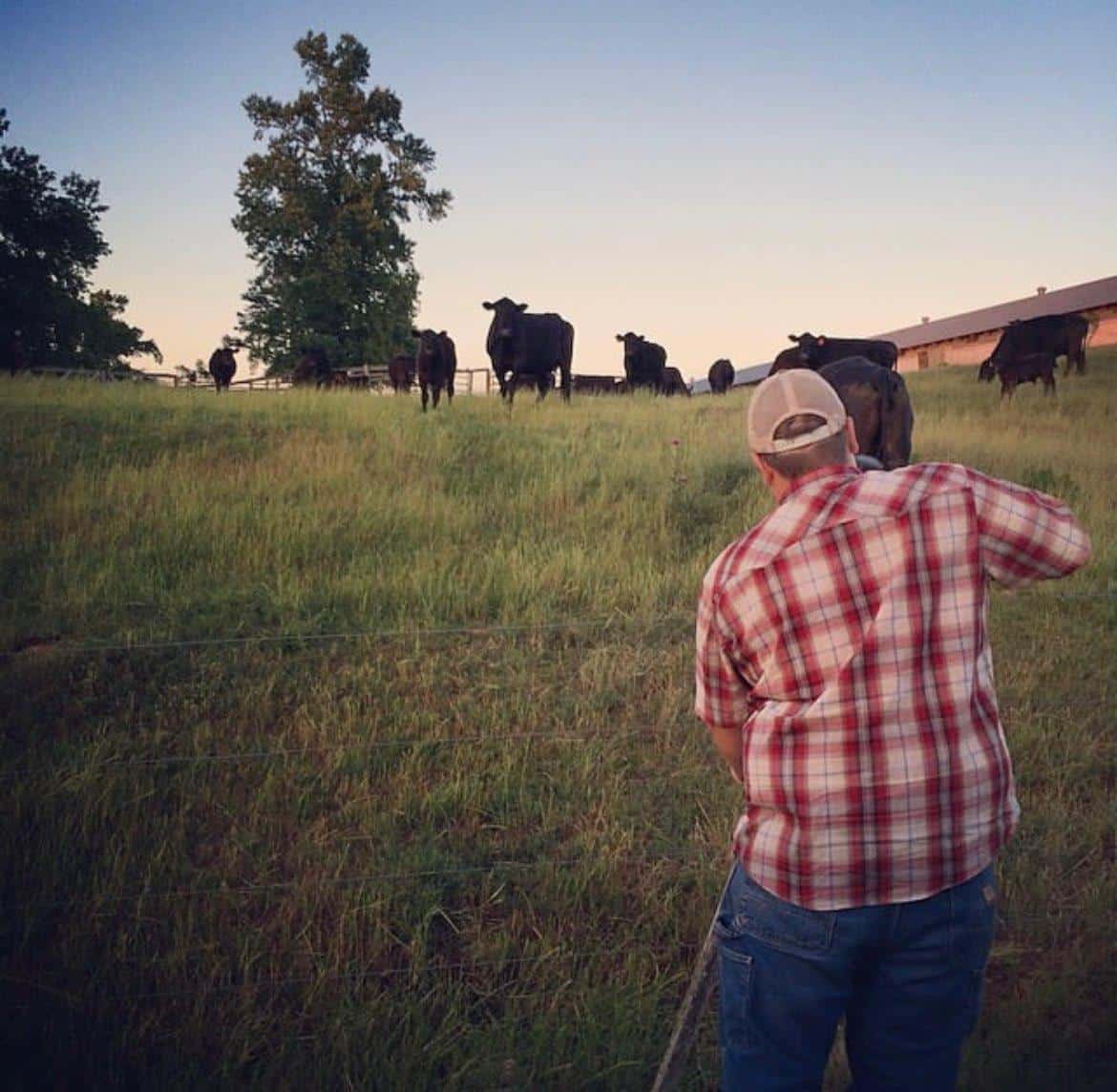
Agriculture is an essential part of Georgia’s economy, contributing nearly $70 million yearly.1 Georgia farmers lead the nation in producing peanuts, broiler chickens, pecans, blueberries, and spring onions. In addition, they are top producers of other commodities like cotton, watermelon, and peaches. Of Georgia’s 37 million acres, 9.95 million are farmland. Farmers navigate an intricate growing, processing, marketing, and distribution network to get commodities from their farms to your table.
There is a significant impact of farm stressors on the mental health of farmers. The suicide rate among farmers is much higher than that of the overall working population.2 In 2020, the Georgia Rural Health Innovation Center (GRHIC) partnered with the Georgia Foundation for Agriculture and the Georgia Farm Bureau to study the effects of farm stressors on mental health.3 An alarming finding of that study, published in 2022, is that first-generation farmers experience increased stressors, negative thoughts and feelings, and suicidal ideation compared to generational farmers.
There’s a common belief that generational farmers experience heightened stress because of pressure to maintain family farmland or farming traditions. The GRHIC study found that generational farmers are less concerned about losing their farms than first-generation farmers. However, this does not mean that those stressors do not exist, but it could indicate that generational farmers have better ways to deal with their stress, so the impact is not felt as keenly.
Alicia Berry is a farmer in Sumter County, and her husband Matt is a first-generation farmer and agribusiness owner. Alicia and Matt are active in the ag community. Matt is president of the SOWEGA Cattleman’s Chapter and president of the Sumter County Farm Bureau. Alicia is secretary and treasurer of the SOWEGA Cattleman’s Association and chair of the Women’s Committee for Sumter County Farm Bureau. As she’s become more active in agriculture, she’s spent more time observing farmers: “I’ve noticed the seasoned farmers don’t seem to let much ruffle their feathers. They roll with the punches and realize many things are out of their control.”
Compared to generational farmers, first-generation farmers report higher perceived stress, unhappiness with their role as a farmer, and increased feelings of sadness, loneliness, and hopelessness than generational farmers. A 2015 study4 found that first-generation farmers are more risk-tolerant than generational farmers, and farmers, in general, are more risk-tolerant than the average employee4. The GRHIC study shows that the consequences of these risks can still lead to stress and mental agony.
Matt said, “There is no book or magic answer to learn to deal with what stress is to come.” When starting out, he recognized that some of the biggest hurdles were knowing who to turn to in times of crisis. “Generational farmers have that network, people to turn to and get advice from. In most cases, they work for their family members and are shown the ins and outs and the train wrecks happen under supervision or guidance of an experienced farmer or rancher.”
Being a first-generation farmer has ties to higher stress levels, worse mental health, and higher suicidal ideation frequency. About two-thirds (61%) of first-generation farmers thought about suicide in the past year compared to 20% of generational farmers. Almost half of the first-generation farmers (46%) think about dying by suicide at least once a month or more often, compared to 11.6% of the generational farmers. Finally, an alarming 9% of first-generation farmers are thinking of dying by suicide daily, compared to less than a percent of generational farmers.
Trey Bouwsma is a commercial broiler farm manager. He grew up on a commercial broiler and cattle farm in Northeast Georgia, so he understands farm stress personally and professionally. “I interact with poultry producers on a daily basis, and many producers vent to me about the struggles of being a farmer. Unfortunately, most of the farmers I know and come in contact with have a very high stress level.”
The top stressors of first-generation farmers are related to finances: COVID-19’s effect on farm income, saving and retirement, succession planning, and unexpected financial burdens. “Typically, your generational farmer has a strong foundation of support,” Trey responded when asked what generational farmers have that lessen the stressors or negative feelings of first-generation farmers. That support isn’t just helpful advice. He said, “Land that is owned can be used as collateral when trying to acquire land. Many first-generation farmers are sinking all of their assets and savings into a down payment. Their margins for errors are more narrow. There is a lot more pressure to do well.”
He said, “It’s like being in a race, and the folks you’re racing against got to start halfway to the finish line, and you started at the normal start line.”
Alicia’s advice for first-generation farmers starting out is to find good organizations to join. In addition, she said, “Get to know the experienced farmers in the area. They are great resources. They are great to turn to in times of need and know firsthand what you’re going through.” This made a difference for Matt as experienced farmers would “just call or stop by and check on me to see how I was doing.” Their guidance and encouragement were timely, according to him, “in the good and bad times.”
Sources:
[1] UGA Center for Agribusiness & Economic Development [2] Kennedy, A., Cerel, J., Kheibari, A., Leske, S. & Watts, J. (2021). A comparison of farming- and non-farming-related suicides from the United States’ National Violent Deaths Reporting System, 2003-2016. Suicide and life-threatening behavior, 51(3), 504-514. [3] Basey, S. M., Montgomery, A., Scoggins, C., & Baucom, L. (2022). State-wide Report of Farmers’ Mental Well-Being. https://www.georgiaruralhealth.org/programs-and-events/farmworkersurvey/ [4] Roe, B. (2015). The Risk Attitudes of U.S. Farmers. Applied Economic Perspectives and Policy, 37(4), 553-574.